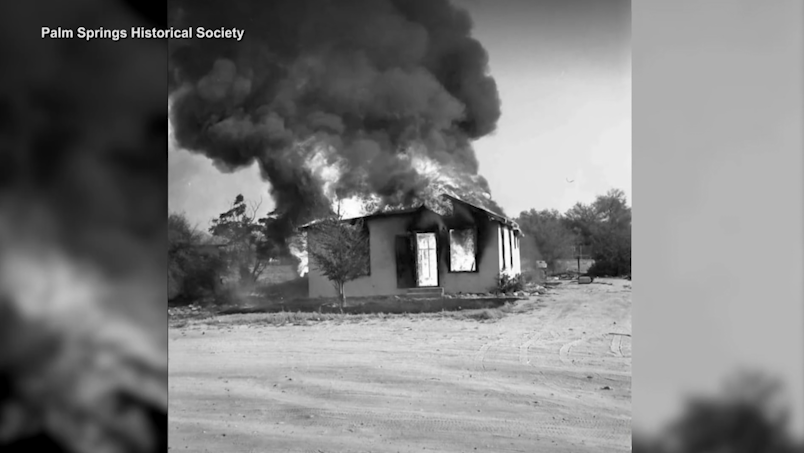‘Really disappointed’; Lawyer for Section 14 survivors reacts to Palm Springs rejection of consultant proposal
The attorney of the Section 14 survivors and descendants, Areva Martin, is calling the City Council’s vote to delay the hiring of a consultant a major setback.
In a 3-2 vote, the council struck down a proposed 12-month, $502,304 contract with The Trustees of Columbia University. If approved, the team would've spent the next year working on a reparations plan for the survivors of the Section 14 forced evictions that took place between 1954 and 1966.
“I think the city missed an opportunity to make good on some of the promises that it has made to these families," Martin told News Channel 3.
Martin was shocked by the city council’s decision to reject a consultant agreement. The plan would potentially pay reparations to families for their evictions from land known as Section 14 in the Downtown Palm Springs more than 50 years ago.
“This reparations consultant was supposed to be evidence of their good faith, engagement of their good faith efforts to try to make these families whole," Martin said.
Councilmembers Lisa Middleton and Ron DeHarte, along with Mayor Pro-Tem Jeffrey Bernstein, called for more research to be done on the issue, including the city's role in the forced evictions, before moving forward with a reparations program.
“I can feel very comfortable standing in front of the public, and saying we did this wrong. And we have an obligation to make amends for what we did wrong. But I think we have to have consensus as to what it was specifically we did wrong," said Middleton.
Martin said that information has been available to the public.
“Let's kick this can down the road again. Let's continue to delay, let's stall, let's distract let's do anything other than deal with this issue head on. You can bring in 100 different researchers, 100 different historians. And the facts remain, the facts are not going to change.”

Mayor Pro-Tem Bernstein stated that although he supports the need for reparations, he believes research should be done by a group that doesn't also have an advocacy role.
“I do think we need to go for a step forward but an advocacy group, I don't think will be as objective, go into the historical context. And I would like to know, because we may find the city is not liable for a lot of things, you know, for that much," Bernstein said.
Martin disagreed, telling us the consultants have experience in handling cases like this.
“I think what was so insulting to Columbia University, this Ivy League university with this tremendous wealth of experience," she added. "To get to a public meeting, and for the first time, hear some of those comments. I think it just spoke poorly as it relates to that governing body.”
Despite the majority of the council rejecting the consultant proposal for now, Martin says it’s only pushing the impacted descendants and families to work harder.
“The record is very clear about the commitment that the city has made to these families. And we're going to hold them to that commitment," Martin said. “These families are not going away. They have found their voice. And if anything, their voice is just going to get louder and louder and louder.”
Another public meeting is set for May 20th. Martin says survivors and descendants plan to discuss details for a settlement proposal.
Back in November, Martin's law firm filed a claim with the city of Palm Springs seeking between $400 million and $2 billion.
Whether it be a lawsuit or negotiations with the city, Martin says will work to make sure they get what they deserve.
In Sept. 2021, the city formally apologized for its role and began the process for a monetary contribution to those displaced.
In November, a group of over 500 survivors and descendants filed a racial reparations claim against the city of Palm Springs.
